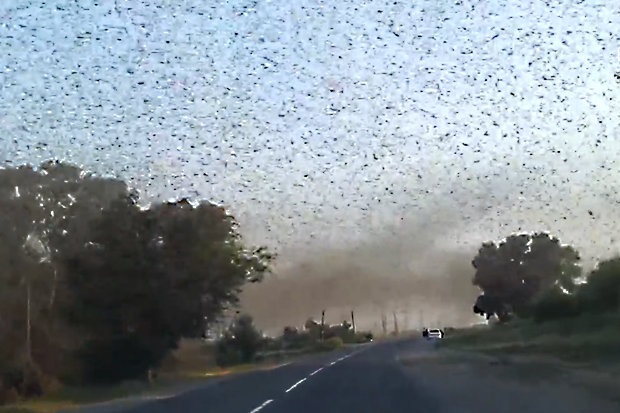Wheat, maize, and rice yields, particularly in northern climates, are projected to fall as insects in temperate regions thrive in a warmer climate, a new research has shown.

The study, which was published on Friday, August 31, 2018 in the journal Science, models increases in insect populations and their metabolic rates in a warmer world, and projects a 50 to 100 percent increase in pest-induced crop losses in European wheat, and 30 to 40 percent increases in north American maize, even if countries meet their existing commitments to reduce greenhouse gas emissions.
“In some temperate countries, insect pest damage to crops is projected to rise sharply as temperatures continue to climb, putting serious pressure on grain producers,” said Joshua Tewksbury, co-lead author of the research and a director of Future Earth, an international research network for global sustainability.
Insect pestilence already reduces net yields of wheat, maize and rice, three staple grains – these grains provide 42 percent of total calorie consumption worldwide. However, models assessing the agricultural effects of climate change rarely consider losses due to insects.
Future bugs, however, in a warmer climate are expected to be even hungrier and more numerous. Warmer temperatures have been shown to accelerate an individual insect’s metabolic rate, leading it to consume more food during its lifespan. And while pest populations may decline in some hotter tropical areas, they are expected to increase elsewhere as temperatures rise and additional ecosystems become favorable to the insects.
The researchers calculated the potential for crop damage through 2050 by combining robust climate projection data, crop yield statistics, insect metabolic rates and other demographic information.
The study finds that Europe’s bread basket could be among the hardest hit. Currently the most productive wheat producing region in the world, pest impacts on European wheat could create a total annual pest-induced yield loss that could top 16 million tons. Eleven European countries are predicted to see 75 percent or higher increases in insect-induced wheat losses, including the U.K., Denmark, Sweden and Ireland.
Insects could also create major impacts on maize and rice yields in North America and Asia, respectively. The U.S., the world largest maize producer, could see an almost 40 percent increase in insect-induced maize losses under current climate warming trajectories, a reduction of over 20 million tons annually. Meanwhile, one-third of the world’s rice production comes from China, where future insect-induced losses could top 27 million tons annually.
“On average, the impacts on insects adds up to about a 2.5 percent reduction in crop yield for every degree C increase in temperature – for context, this is about half the estimated direct impact of temperature change on crop yields, but in north temperate areas, the impact of increases insect damage will likely be greater than the direct impact of climate on crop yields,” said Tewksbury, who is also a research professor at CU Boulder.
The study recommends changes to global agricultural practices, including increased selection for heat- and pest-resistant crops and new crop rotation patterns to reduce vulnerability to insects. In some extreme cases, greater pesticide use may become necessary to secure regional food supplies, even at the cost of possible associated health and environmental damage.
Additional co-authors of the study include Michelle Tigchelaar, David Battisti and Raymond Huey of the University of Washington; Scott Merrill of the University of Vermont; and Rosamond Naylor of Stanford University.
